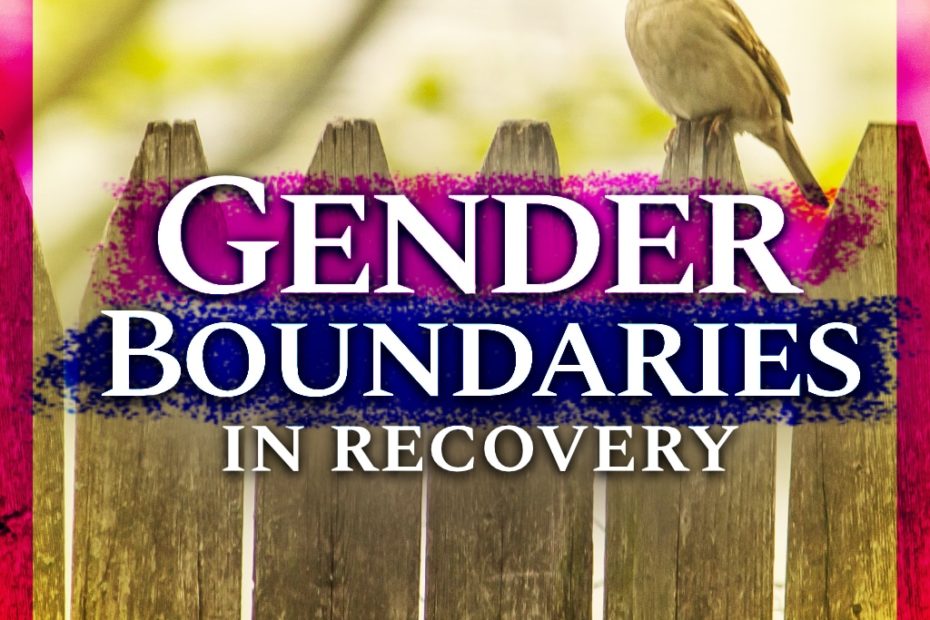As a woman, being in a mixed, mostly male-dominated fellowship can be challenging. And for the men, I’m sure it’s complicated to have us women around as well.
Do you really think our disease doesn’t follow us into the rooms?
When I joined SA, I was wary of attending mixed meetings (In my faith tradition, the genders are kept widely separated). But at that time, I didn’t have the luxury of women-only meetings, so I attended the mixed meetings anyway.
At my first larger meeting, I was the only woman in a crowd of 25 or 30 people. I remember feeling kind of lost. After the meeting, I was welcomed by a guy from a similar background as mine. We ended up talking for around an hour about our recovery stories, and how our community of origin views the topic of sex and recovery. I felt understood, validated, and had that warm feeling that connection tends to give us.
But then he offered me his phone number. That’s where my disease popped up. I felt uncomfortable taking it, but also felt uncomfortable refusing. He was being so kind. He’s in recovery, after all. What could possibly go wrong? So, I took his number.
Now for some people in recovery, having phone numbers of the opposite gender isn’t a problem at all. But for me, in early recovery, that wasn’t the smartest thing to do.
Thankfully, later that night I was on the phone with a female fellow and told her what happened. She called me out on all of my rationalizations of why it wasn’t a problem that I’d taken his number. She didn’t let me get away with it.
When I saw him next at a meeting, I faced my discomfort and told him that I’d be deleting his number. I said that although I was OK with talking to him during fellowship, I couldn’t talk to him outside of the rooms.
And so I set my boundaries. It was fine for me to talk to guys during meetings or fellowship, but I would have no contact with them anywhere else.
Fast forward 2 years.
In early 2020, I had a very hard time during the first Covid lockdown. I didn’t have my regular face-to-face meetings, was stuck in a different country, and was also pregnant. Was I stressed? Yup.
So when a guy reached out to me after a Zoom meeting (he thought he might have a sponsee for me), I thought it was fine. After all, I was now sober two years and it was “for recovery”, so couldn’t I make an exception? So I agreed to talk to him.
We ended up speaking for over 2 hours. Until 2 AM. And though we were talking about recovery, my disease was loving every minute. I was enjoying an emotional connection with a male other than my husband. Mid-conversation I already realized I wasn’t in a good place, because although I wanted to finish the call and go to sleep, I couldn’t bring myself to tell him that.
It was a good reminder that my disease is always ready and waiting.
All I gotta do is let my guard down.
I still struggle with my disease coming into the rooms with me. For example, before going to a meeting, why do I obsess so much about what I’ll wear? Or, how many times have I arrived late because I couldn’t leave the house before making sure my makeup was perfect?! Sometimes, I agonize over what people will think about my share (and by “people”, I don’t mean the women in the meeting. Ha.) It’s in those little things, but as long as I’m honest about them, then I have the opportunity to work my program on them, and truly grow in my recovery.
On the flipside, I do think it is healthy and useful for me to go to mixed meetings. It gives me a chance to see past my previous objectification of men, and see the humanity inside of them. Hearing men share at meetings reminds me that they are real people with worries, fears and emotions. Men also think very differently than women, and I’ve gained so much wisdom from hearing their perspectives and thoughts on recovery. This is all great. I just need to make sure I also have healthy boundaries in place, to make sure that our meetings improve, rather than erode, my recovery.
If you’re on the fence about setting healthy boundaries, or are concerned about a specific situation, I suggest discussing it with your sponsor. Boundaries cannot be set universally for everyone, because they depend greatly on the exact nature of our addiction. What’s safe for some people can be dangerous for others, and what’s risky for one person can be totally fine for someone else! And so my boundaries are also different from other women in recovery.
But all told, my boundaries are important, and they help keep me safe in my sobriety.
? MORE NEW ARTICLES!
Join our weekly email list to get all our future articles, directly to your inbox.
[mailjet_subscribe widget_id=”2″]



